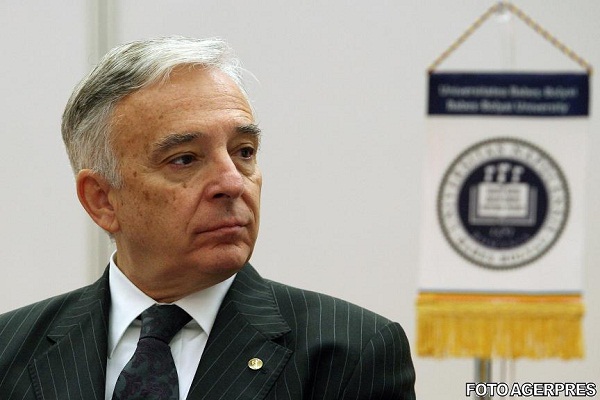Romania's Central Bank governor: 12,000 people have deposits over EUR 100,000, a joy and a concern



 For the first time, the Romanian Central Bank (BNR) governor Mugur Isarescu (in picture) has revealed the number of Romanians who have more than EUR 100,000 in the bank. In total, 12,000 Romanians have bank deposits above EUR 100,000, said the BNR governor, while at the end of 2012, there were 16,500 bank deposits of over EUR 100,000, valuing some EUR 3.6 billion.
For the first time, the Romanian Central Bank (BNR) governor Mugur Isarescu (in picture) has revealed the number of Romanians who have more than EUR 100,000 in the bank. In total, 12,000 Romanians have bank deposits above EUR 100,000, said the BNR governor, while at the end of 2012, there were 16,500 bank deposits of over EUR 100,000, valuing some EUR 3.6 billion.
The EUR 100,000 threshold is significant as any amount below this are guaranteed by the state and will be reimbursed in the case of bank collapse, while higher amounts are held at the depositor's risk. BNR chief economist Valentin Lazea recommended recently that Romanians consider this and look for ways to keep deposits below EUR 100,000, in light of the recent banking crisis in Cyprus. Governor Isarescu recently said he did not want to put himself in an awkward position by offering advice to Romania's rich. However, he did confirm the EUR 100,000 threshold for guaranteed limits and described having over the amount in the bank as both “a joy and a concern.”
The recent comments came after the problems in the banking system in Cyprus, which is set for major upheaval and some depositors stand to lose considerable sums. Cyprus reached an agreement with the EU, the European Central Bank (ECB) and the International Monetary Fund (IMF) on the terms of a bailout for the country after all night talks in Brussels on March 25.
Under the terms agreed, holders of uninsured deposits over EUR 100,000 in the two “problem” banks stand to suffer considerable losses. One of the banks, the Laiki Bank, will be closed down. In return, Cyprus will get a EUR 10 billion bailout, which will stop the banks collapsing and keep the tiny island state in the eurozone. The agreement came right before the ECB deadline, which threatened to stop funding the Cypriot banks today (March 25 ) if a deal had not been made. Romanian president Traian Basescurecently said he's never agree with a similar measure in Romania.
“The plan focuses on dealing with the two problem banks and fully protecting insured deposits in all banks. It addresses upfront the core problem of the banking system through a clear strategy that ensures debt sustainability and does not excessively burden the Cypriot taxpayer,” said IMF managing director Christine Lagarde. She went on to say that the deal will tackle underlying problems in Cyprus and put the country “on a sustainable path to recovery.”
The agreement will keep Cyprus in the eurozone, but at considerable cost. Analysts predict years of recession as the country is essentially forced to scrap its primary industry – offshore banking. “It’s not that we won a battle, but we really have avoided a disastrous exit from the eurozone,” said Cypriot Finance Minister Michalis Sarris at a press conference after the deal was struck.
The new agreement came after the Cypriot Government tried to pass a law enforcing a tax on all bank deposits, but the new law was not approved by the Parliament.
editor@romania-insider.com
photo source: Agerpres